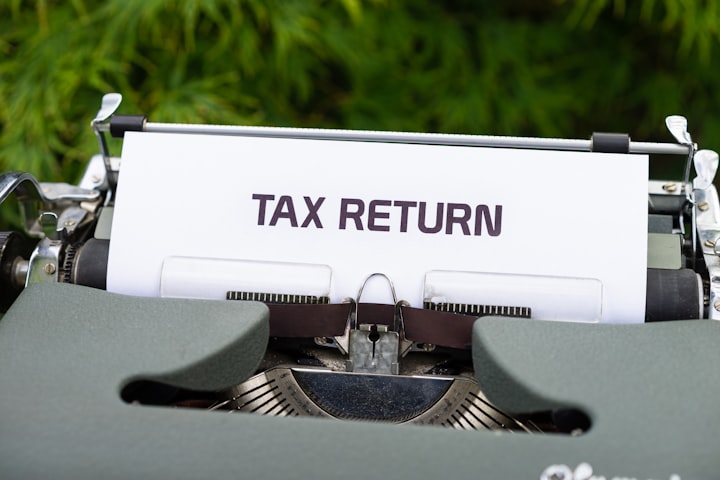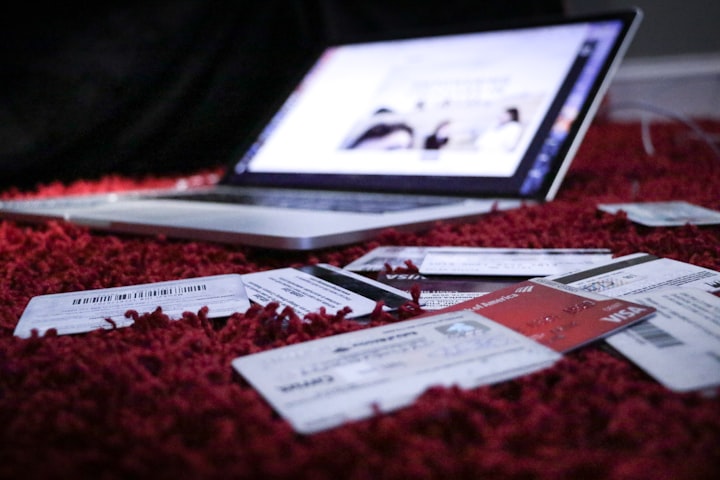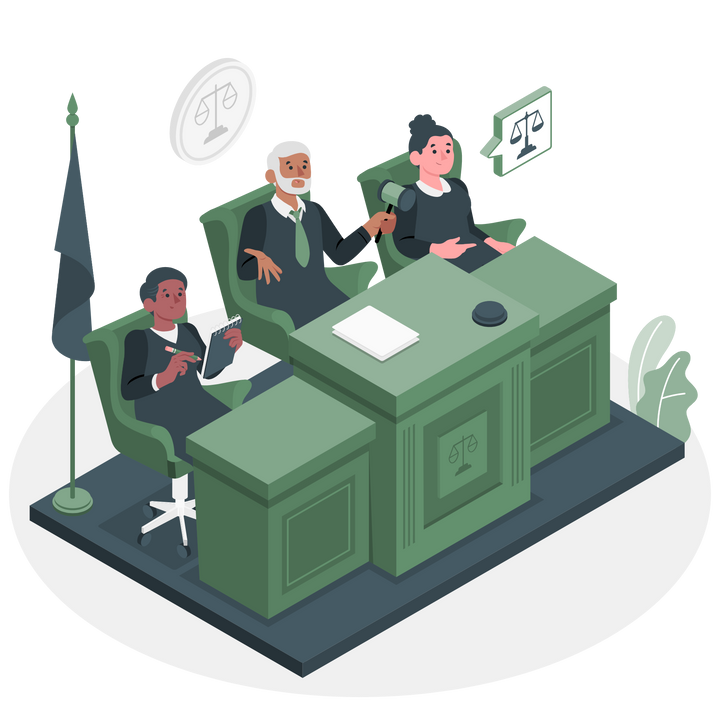Why Is My Car Payment So High?
Why is my car payment so high? This is a common question when faced with purchased any vehicle. Here's the explanation you're searching for.

Why Trust Us?
Salt & Pepper Finance is an independent expert publication– we don’t bend to affiliates like those other blogs. Our experience and suggestions are our own and not fueled by anyone else (or their money). Plus, we’re people– we have been in debt and made it to the other side. We grew up where money was a taboo topic and we want to help answer the questions that are real, but not commonly discussed. For more info read our About Us page. If you’d like to help our cause please consider joining our free newsletter.
If I had a nickel for every time I heard a sob story about someone getting in over their heads with their car payment—I’d probably have enough to buy a car dealership. But there is some very serious (and highly aggravating) reasons why your car payment is sky high and you never seem to move the needle on your payoff.
I’m going to tell you how to avoid this problem if you’re about to buy a car and what to do to save yourself if you’ve already purchased the car.
First, please consider subscribing to my email list. Here's what you'll get for free:
- Our printable downloads
- Our digital downloads
- All of our exclusive credit card articles
- Waitlisted for our insights newsletter
What makes your car payment high(er)?
Principal and interest are what make up your car note. If you finance your vehicle then you will need to pay that off plus pay for the interest that was tacked on for borrowing in the first place.
“So I have to spend money, to borrow money?” —Yes. And if it seems like a terrible catch-22 situation, it is.
What is Principal?
The principal is like the main loan amount. It’s typically what you’ll see on the sticker minus any taxes or fees (if they add those in, some make you pay separately).
So if you buy a $20,000 vehicle, then this is your principal amount.
What is Interest?
The interest is the money you owe the lender for borrowing. Sometimes it’s expensive to borrow money and sometimes (albeit rare) it is cheap. Everyone wants the lowest interest rate possible because it affects the total loan as well as your monthly payments.

How high is too high for a car payment?
Anything over 10% (ideally less) is likely too high for a car payment.
Any more than this and you might be stretching your budget a bit. Not saying you can’t get a nice ride, but if you are aiming at a vehicle slightly outside of your price range then putting money down will be in your best interest (I’ll explain this more below).
4 ways to get a lower car payment?
There are some great ways I have personally used to keep my car payments low in the past:
- Buy a cheaper vehicle
- Buy a used vehicle
- Look for purchasing incentives
- Aim for a low-interest rate (APR)
Buy a cheaper vehicle
I can sense your eyes rolling, but I feel as if it had to be said for the people in the back. One of the biggest ways to get a cheaper car payment is to remove the biggest cost – principal.
The less you owe the less you need to pay off.
Buy a used vehicle
I’m not going to lie to you and say “used are best” because that is definitely not true in every case. It is solely dependent on the type of car you’re purchasing and its intended use.
For example, you need a work truck that will last for the next 10 years. You find one that is within your price range but wait, what's this? The mileage is way past poor, here's no sign of good upkeep practices, the car fax shows it’s been involved in two accidents and my gosh what is that smell!?
My take? Pass. Dependability will beat cheap every day of the week especially when it comes to something like your livelihood or your safety.
Example 2: You’re a college junior needing an inexpensive car to get you through these last two years of university. Your main needs are to get you to your part-time job and back to campus from your apartment.
My take? Used car all day. Under no circumstances do you have to have a new car in this situation. If you are getting a new ride (more power to you), but don’t lie to yourself, please. Used is affordable and practical here.
Look for buying incentives
I love a great deal, and some buyers don’t realize that there are great deals out there for vehicle purchases.
Incentive programs are one of my favorites. Most of the major car dealerships will have them (Think 'Truck Month' or 'Toyotathon'). But you might find some incentives at a local small dealer so check.
Example of a vehicle purchase incentive
*None of these are real by the way but the essence exists.
- Get $10,000 off when you trade in your vehicle for a new car.
- Qualified buyers can receive 0% financing for 36 months.
- Qualified buyers can get no money down and a 2.0% APR on their new vehicle.
- Finance with our in-house lender and get 0% APR and no payments for 12 months.
The goal of a dealership putting out a buying incentive is to get people in the door, get them to pick a car from their inventory and ideally use their in-house financing to pay for it.
Aim for a low-interest rate (APR)
Interest is commonly overlooked but it is a huge cost and can be a big portion of your overall car payment. The lower the better. Typically you can get a lower APR by:
- Having great credit: The better your credit score, the more creditworthy you are in the eyes of lenders. Aim for 690+.
- Having low debt and high income: This shows you know how to manage your money and are less likely to over exert your spending power.
- Having a pre-approval from your personal bank or credit union: Lenders need you to choose them to finance your loans. Auto loans are lucrative for them and many are willing to compete. Start at your bank first, they will typically have the best offer or have incentives of their own for you to look into.

How to lower your existing car payment
Not if you’re already knee-deep in a car note that is slowly sinking you there are options but they aren’t exactly pain-free. It truly depends on how badly you want to lower that payment and what you’re willing to give in return.
Refinance your car
A refinance is like a do-over for getting a new interest rate. This works best for those who have paid on the vehicle for at least a year and who have the ability to drop their interest.
If you financed your vehicle recently you might have gotten a 10%+ rate depending on your credit. Now, fast forward a year or two and you see rates have dropped into the 7% range. This could work for you in two ways:
- Now you are getting less interest on your principal (amount owed). Rates don’t have to drop by much, even 1 or 2% can make a huge difference.
- You are financing a lower principal amount. If you’ve paid down a decent bit of your loan amount then you get to refinance at the new remaining balance, not the original price.
Sell your car
Ouch, I know. Selling your car is a pain especially if you really like what you’re driving. But cars aren’t couture you can get another one. Selling your car only works if it’s worth more than the sale price or at minimum allows you to break even (you sell it for what you owe).
This is why you need to consider putting money down when you first buy the vehicle, regardless if it's used or new. But new cars will depreciate faster so they are worth less way quicker than a used car.
Check with Kelly Blue Book to see what your car is worth and do some online research to see what it’s going for at local dealers. Some may offer you better deals than others. If you can find a buyer yourself you can typically sell higher but this of course requires more work on your end.

Trade your car
Now let’s say you’re one of the cases where you owe more on your vehicle than it’s worth (this is a large population unfortunately), then you have two options.
- Pay the price difference
- Roll over the excess
Paying the price difference is your best option but cash on hand for many is a tough ask. Now you can also trade your car and roll over the existing into another vehicle but there are some limitations to this.
First, it typically has to be a new car. All the lenders I’ve researched will not allow you to roll over a portion of a loan into a used car. Second, the rollover has to be within a certain amount. For example, you can’t roll over $20k in excess onto a new $20k loan. It’s tricky but possible and may take some finess but trading for a cheaper vehicle is an option.






Comments ()